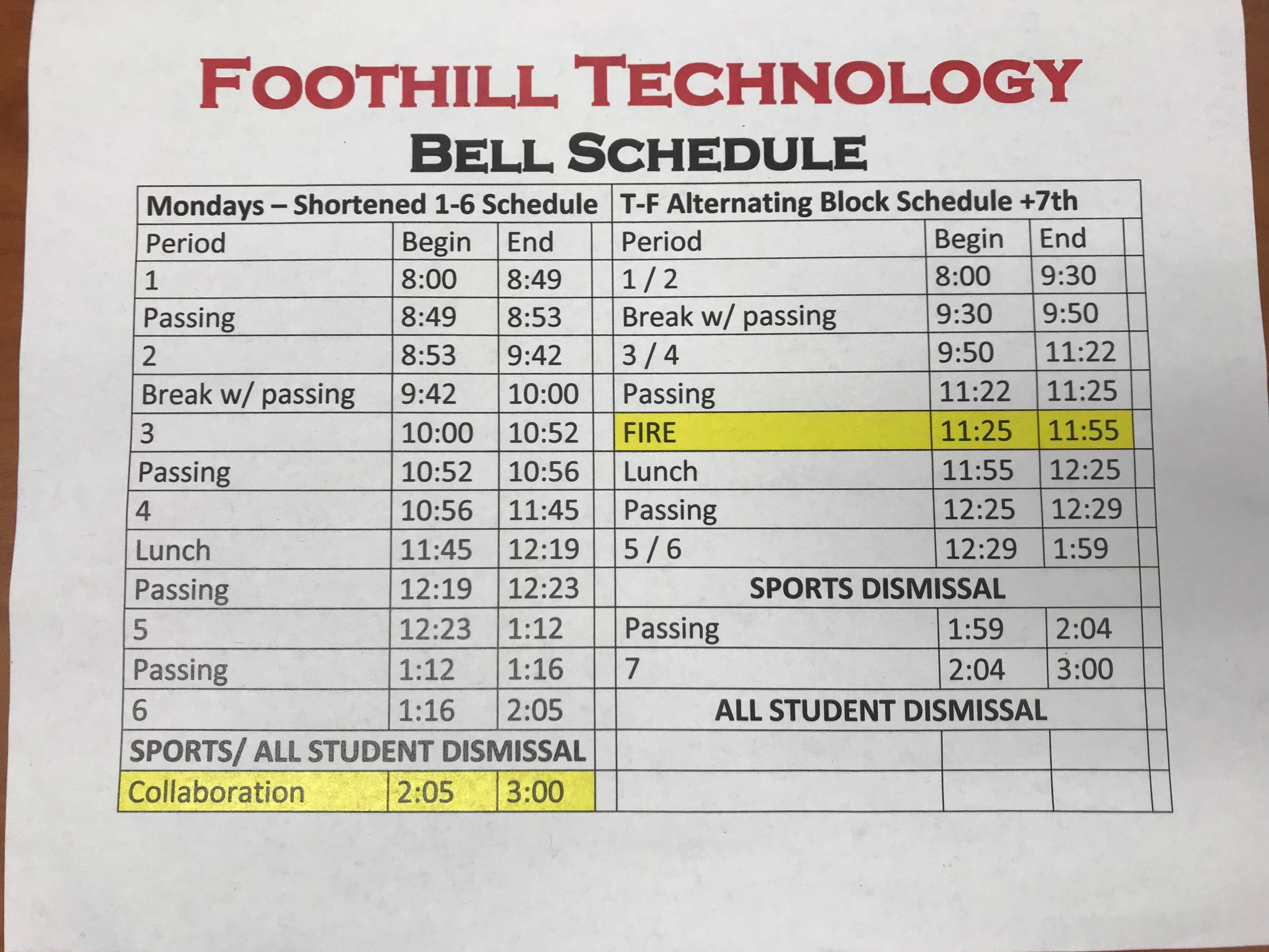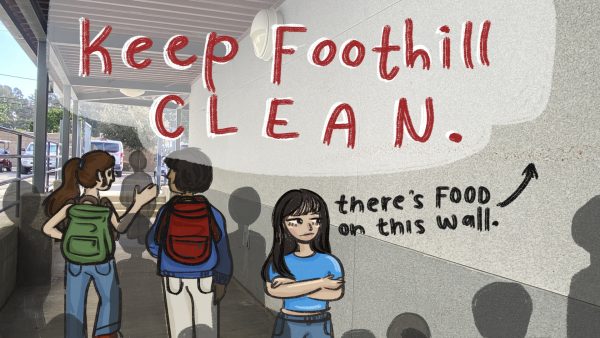Shaking up the school system
Knowing we have a moral obligation to educate every member of our society, we need to make changes to improve our system.
Abolish Monday, and we abolish many of the current shortcomings of school.
The pros and cons of the school system are similar to those of being in a union: it may come with lots of personal advantages, but it also protects people who aren’t very good at their job. At times, public school can feel inefficient, riddled with contradictions, and hell-bent on holding better students back. Schools must be restructured to allow for more independent learning and choice.
I’d imagine many ardent Spanish students can relate to this sentiment when they’re trapped in a classroom full of just-here-for-the-credit kids who can’t help but yell out sex jokes, giggle at nothing and take half an hour arguing over the name for the character in the class story. Countless colleagues have told me about their frequent excursions onto Khan Academy after long days of dragging themselves into math or science class only to leave more dumbfounded than before. One of these colleagues went so far as to tell me that online alternatives “render traditional school unnecessary for academic excellence.”
Taking these gripes into account, it’s a surprise that education hasn’t become completely independent. Why can’t everybody just learn at home? We have the ability to create digital courses with clear instructions and proficiency-building exercises. Could Rosetta Stone be more conducive to learning than being present in a Spanish class?
It’s not as if there aren’t options for students that do just that: Buena Vista and El Camino are examples here in Ventura. In the same spirit, online universities like Devry University are gaining popularity. Still, the idea of independent study remains taboo as onslaughts of propaganda succeed in scaring aspiring learners away from choosing alternatives. According to the majority of parents and students alike, independent learning is for loners.
To the contrary, many kids feel isolated because of school. To use an extreme example, school shootings are violent reactions to the chronic social pressure and bullying imposed on perpetrators in a packed school environment. In the absence of attending school regularly, it’s not crazy to think kids will naturally improve their social skills by looking elsewhere for people with whom they share interests: music groups, drama clubs, basketball courts, and the like. School shootings can’t happen if there are no schools.
As enticing as finishing all your work before 11 a.m. may sound, that’s a choice students have the freedom to make and most pass up on. Additionally, there are many objections to the idea of dissolving the public school system. There are concerns that it would favor learners with more money and connections (like the current system doesn’t do that), put a burden on parents with younger children, and ultimately become a Ron Paul-libertarian dystopia where students earn their diplomas by reading Milton Friedman books and watching YouTube videos. These are legitimate misgivings.
Perhaps the paramount fear is a breakdown of student discipline: without some tyrant telling them exactly when to focus on something, how to do it, and what that “something” is, male students will elect to stay in their rooms all day, play video games, and slide into girls’ DMs instead of talking to them in person. This fear is irrational because it adduces a symptom of the current system—student laziness—as the reason we can never do things differently.
Historically, the growth of the public school system we see today coincided with the growth of factories and the assembly line as the urban population increased. To increase production mass amounts of workers were crowded into close quarters. Mass organization does not translate nearly as well into school, as there is no common goal of production; each person has their own educational interests.
Boomers who got a high-paying union job straight out of high school during the post-war glory decades of American capitalism will tell you that school is worthwhile because it helped them become a productive member of the workforce. Yet as automation and outsourcing continue eliminating jobs under twenty-first-century global capitalism, people are starting to wake up to the fact that what you do to survive shouldn’t define you as a person. We can’t all be STEM majors.
In 1930, economist John Maynard Keynes predicted advances in technology would lead to a 15-hour workweek. This hasn’t happened, of course. Instead, the economic elite has inculcated a work culture that assigns value to the “bullshit jobs” that David Graeber writes about in his book by that exact title. Graeber describes “managerial feudalism,” in which “employers need underlings to feel important and maintain competitive status and power.”
The purpose of education shouldn’t be to simulate managerial feudalism: frustrated, underpaid public servants corralling developing minds into herds of sheeple tasked with doing work for the sake of doing work. Although its stated purpose is to make you smarter, school is constantly hurling obstacles in your way of knowledge acquisition. Students, many who are moving into the second quarter of their lives, are still forced to take rounds upon rounds of general education they won’t use in real life. Do you know what would be a useful general ed class? How about learning about the functions of our political economy? Why is the government and economics class only offered to seniors? What about a basic financial planning class? Media literacy class? YouTube and SoundCloud are blocked on the school network because they are “distractions,” yet precious minutes of class are spent interrupted by P.A. announcements that not many care enough to listen to and could always read on their own time.
Knowing we can’t just defund all schools and that we have a moral obligation to educate every member of our society—even the dim bulbs—we need to make changes to improve our system. What we need is a compromise between the Ron Paul dystopia and the bureaucratic nightmare, and to its credit, Foothill has made certain moves to help. The block schedule enriches class time and makes everything more measured and less overwhelming. However, more must be done: I believe it necessary to shorten the school week to four days by extending the weekend into Monday. Additionally, we need to eliminate electives from the A-G requirements; it’s the same logic as getting rid of compulsory volunteer service. It will remove those kids from Spanish class who don’t want to be there, while also increasing the value of all elective courses.
Mondays at school always go by too fast; with roughly 50-minute classes compared to 90-minute block periods, they’re more there to remind you of the order of your classes than to actually teach you something. Shorter periods are harder to settle into, and many kids fail to take them seriously. With a whole extra day of the weekend, students will have extra time to rest and mentally prepare themselves to enter long block periods where they can focus. Since there’ll be less time in the school week, teachers will be forced to cut out busy work to keep pace with the curriculum. Abolish Monday, and we abolish many of the current shortcomings of school.

I am a senior, third year illustrator, and thrifting enthusiast who is obsessed with “Friends."
































Troy • Apr 26, 2019 at 1:01 pm
I feel like the problem with the spanish classes is that the teachers let this kind of behavior continue. I was the same way in my spanish class but señora leaf didnt do anything to correct anybody’s behavior. Talk to the teacher if you really feel like other students are taking away from your learning experience, in sure she would appreciate that communication and maybe do something about it for once.
I also disagree with getting rid of A-G requirements. It sets everybody up to be on track for college, and you dont have to follow them specifically if you aren’t going to college. Spanish is an important aspect of that though. You really think you can get by in a changing Unites States with never hearing Spanish? It is such a great skill to have and will open many doors.
As for Mondays: you pointed out no actual problems with going to school on Monday besides basically the format of the class. It is too short compared to the normal block schedule, but that doesn’t mean it needs to be abolished. Many students will lose important instruction time, and many teachers will now be pressed to teach all the curriculum before the test. Maybe what should be done instead is either changing the length of Monday periods, or talk to your teacher. Let them know that their instruction during shorter periods are not effective, and they should try to find a way to restructure Monday classes or find an activity that would be worthwhile.